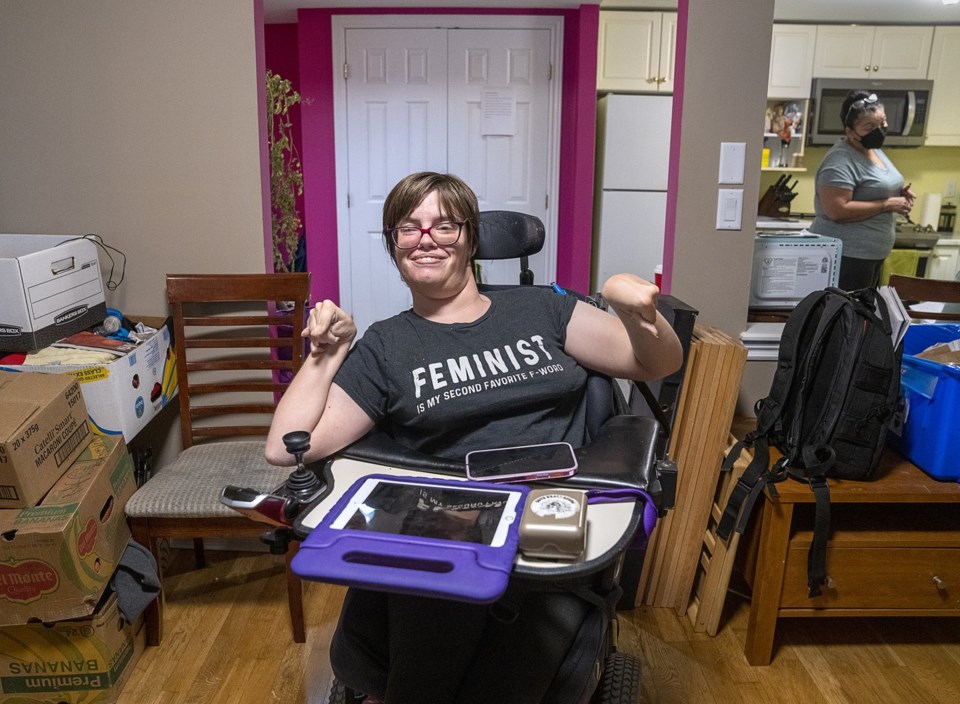HALIFAX — The Nova Scotia government says its five-year plan to bring about sweeping reforms in housing and care for people with disabilities is behind schedule in some areas, but gaining momentum.
"We're getting there ... We have the foundation in place," said Scott Armstrong, the minister of social development, as he released the second annual progress report on Tuesday.
The plan — which is referred to as "the Remedy" — has its roots in a provincial Court of Appeal ruling in 2021 that found the province was systemically discriminating against people with disabilities through inadequate housing and long wait lists for services.
The matter then shifted back to a human rights board process, which created a timeline to overhaul the system. This included closing large institutions and moving their 870 residents into small homes or apartments in the community where they can live more independently.
However, the report says as of April 1 there were 188 fewer people in larger institutions, a number that is about two-thirds of the goal of 261 people the government had set for this spring.
There's also been little progress in the two-year goal of moving about 110 adults under 65 out of nursing homes. The target of creating a program where citizens adapt and share their homes with people with disabilities — referred to as "homeshare" — was also behind schedule.
Armstrong said during a news conference that some of the delays were related to challenges in hiring experienced workers to assist the people transferring to community living, but he added that hiring programs are catching up.
He also noted the department has succeeded in reducing a wait-list for disabilities services by 293 people, exceeding the plan's original targets. In addition, the department has estimated that over two years it's added $80 million in Year 1 and $120 million in Year 2 to transform its program.
All new admissions to the larger institutions ended Jan. 1.
"Momentum is building, not fading; leadership is holding, not drifting and the system is moving deliberately in the right direction," said Armstrong, adding that he's "very confident" the five-year goals of the plan will be met by the 2028 deadline.
However, the Disability Rights Coalition — the advocacy group that led the original court case — says the premier's office should be more directly involved in keeping the plan on track, warning that key supports are not in place.
Victoria Levack, director of the coalition, said in a news release Tuesday that urgent efforts are required from the health system and other government departments to get the reform process back on track.
"The province has struggled to create the health services in community-based settings needed to allow persons with disabilities to leave institutions," she said.
"We call on the premier to make sure that establishing the community-based health services required for the Remedy is a top priority for all the branches of the provincial government involved in this effort."
Julie Hoeg, the chief executive of Sunset Community in Pugwash, N.S. — which operates an adult residential centre that is going through the closure process — said in an interview Monday that it's crucial residents have adequate access to medical care in their new homes.
Many residents require professional assistance with administering medications, including insulin, and some require specialized care and regular oversight by a doctor, she said.
"You wouldn't want a (community) system where you would have a (medical) appointment cancelled at the last minute and a person going without, as this could put people in an unsafe situation very quickly. So these are the types of things that keep me up at night right now," she said.
Still, her non-profit agency is creating a 40-house development, referred to as Sunrise Landing on its land, and it's expected that about 20 per cent of the spaces — seven of the homes – will go to people moving out of the institution.
"If everything aligns well and the different departments step up and help with this work ... then we could see people out in the community, getting out and doing things they want to do ... I get excited about what the positive angle to all this will be," she said.
This report by The Canadian Press was first published June 10, 2025.
Michael Tutton, The Canadian Press



